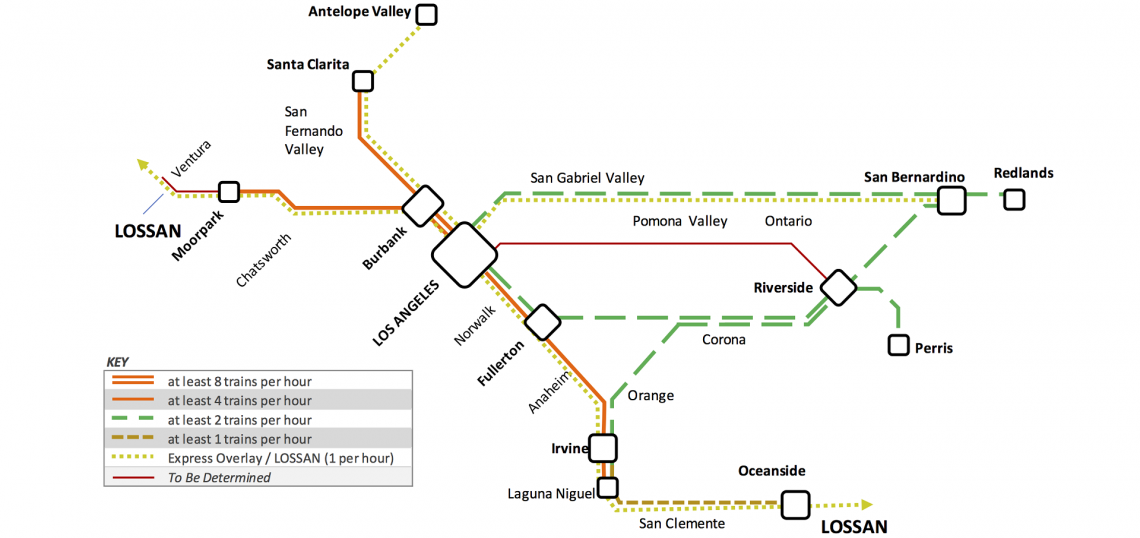The California Transportation Commission has awarded a $6.5-million grant to Metrolink to begin design work and environmental review for an ambitious plan to modernize the expansive, but underutilized commuter rail system.
The money, billed as a "down payment" on a $856-million grant through the Transit and Intercity Rail Capital Program, will allow Metrolink to begin planning for the Southern California Optimized Rail Expansion Program - or SCORE - a $10-billion capital improvement project that looks to enhance regional rail service in advance of the 2028 Summer Olympics.
A full buildout of SCORE envisions partial electrification of Metrolink's Antelope Valley, Ventura County, and Orange County Lines, as well as other investments such as grade separation, improved signaling, new sections of double track, and quiet zones where horns are not blown at all street crossings. These upgrades would allow Metrolink to run trains more frequently across its more than 500-mile rail network - with 15-to-30-minute headways on all lines, and more frequent service during peak hours.
In addition to providing more reliable passenger rail service, SCORE is also being billed as an opportunity to reduce pollution and improve goods movement. Metrolink estimates that implementation of the plan would reduce greenhouse gas emissions across Southern California by 51.6 million metric tons, and reduce the amount of shared track between passenger and freight trains.
At the current time, Metrolink has identified $1.5 billion in funding to implement the SCORE improvements and continues to pursue a variety of federal, state, and local grants for the project - including a potential sales tax measure in 2020. Much of the already-identified funding will go toward the construction of run-through tracks at Los Angeles Union Station, eliminating the current stub-end layout in favor of through-routing.
Nonetheless, Metrolink's capital improvements come at a time when federal transportation funding finds itself increasingly under threat - with the Trump administration refusing to allocate $1.4-billion in already-earmarked money to shovel-ready projects across the country. Furthermore, transportation funding is also threatened at the state level, as the new gas tax levied via SB-1 faces repeal at the ballot box this November.






